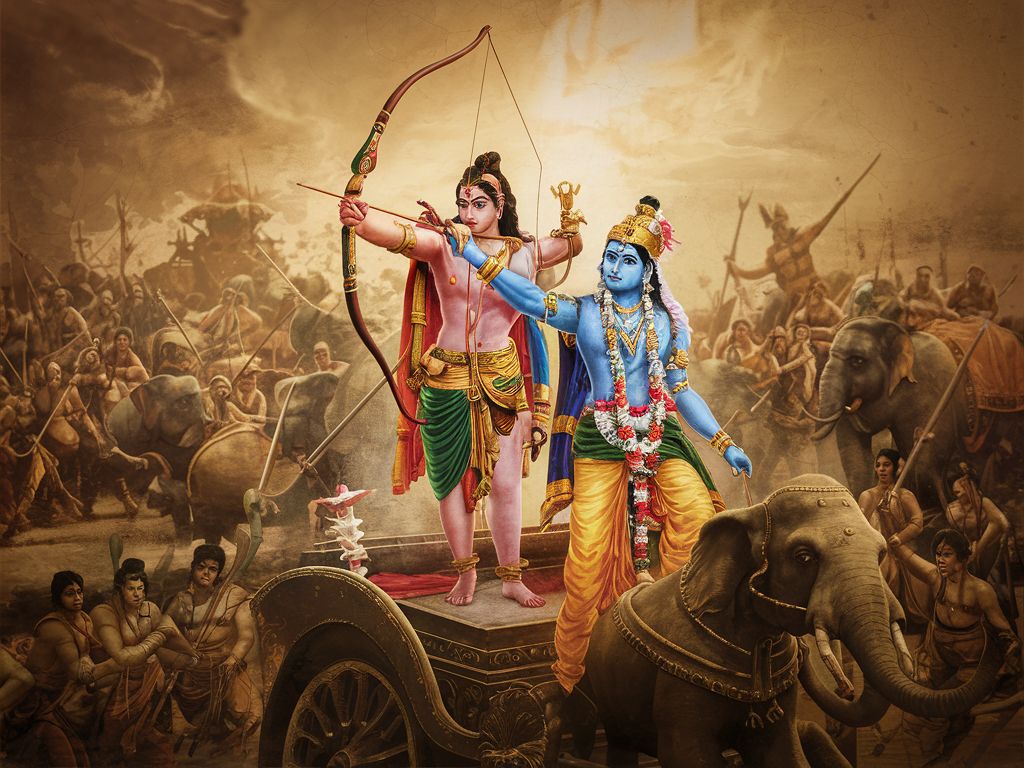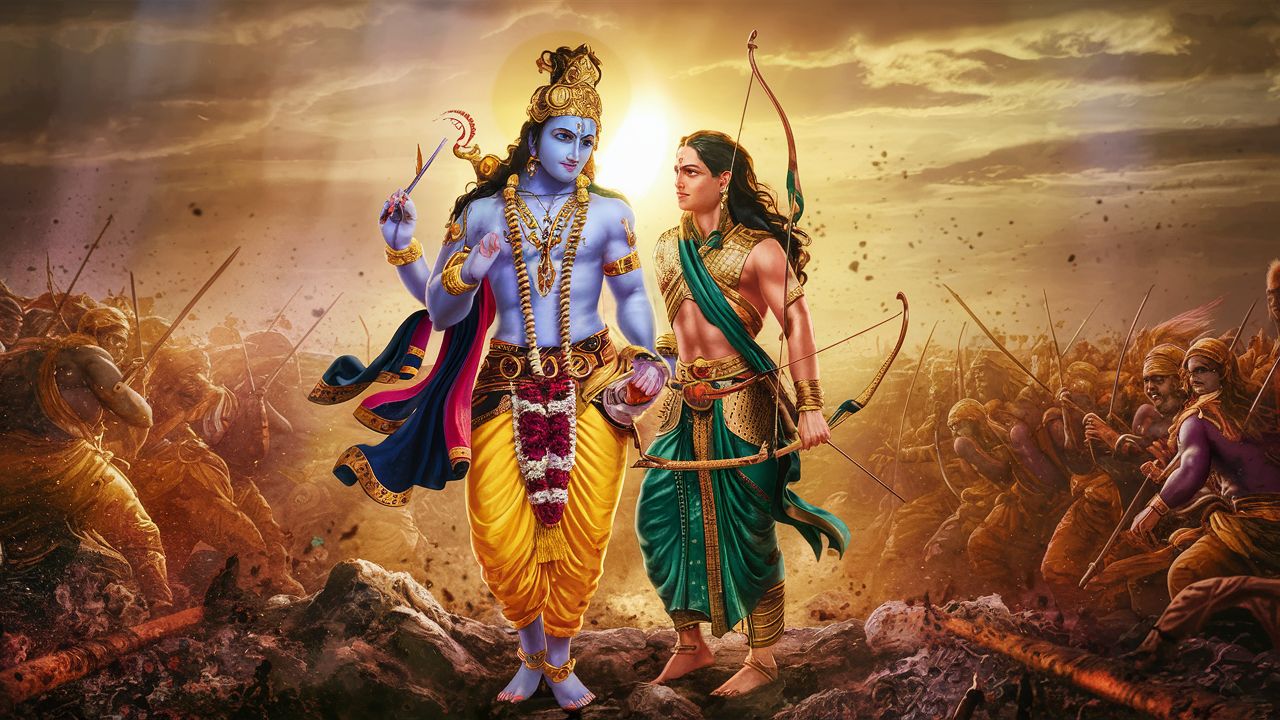Arjuna's inner conflict is a central theme in the Hindu epic, the Mahabharata, particularly in the Bhagavad Gita, where it is vividly depicted and explored. Arjuna, the great warrior and prince of the Pandava dynasty, finds himself torn between his duty as a warrior and the moral dilemma of engaging in a battle against his own kin.

Here's a deeper understanding of Arjuna's inner conflict:
1. **Duty vs. Ethics**: Arjuna is trained as a warrior and has a duty to fight for righteousness and uphold his family's honor. However, when he sees his own relatives, teachers, and friends assembled on the opposite side of the battlefield, he is filled with moral qualms. He questions the righteousness of fighting against those he loves and respects, even if it is for a just cause.
2. **Attachment and Compassion**: Arjuna's inner turmoil arises from his deep attachment to his family and his compassionate nature. He is not driven by selfish motives but by genuine concern for the welfare of his loved ones. The thought of causing harm to them, even in the pursuit of victory, fills him with sorrow and reluctance.
3. **Fear of Consequences**: Arjuna is also apprehensive about the consequences of the battle. He fears the destruction it will bring, not only to his own family but to society as a whole. He worries about the moral degradation that warfare entails and the karmic repercussions of killing his kinsmen.
4. **Seeking Guidance**: In his state of confusion and despair, Arjuna turns to Lord Krishna for guidance. Krishna, serving as his charioteer, imparts timeless wisdom and philosophical insights to help Arjuna navigate his inner conflict and fulfill his dharma (duty) as a warrior.
5. **Transformation and Resolution**: Through the teachings of the Bhagavad Gita, Arjuna undergoes a profound transformation. He learns to transcend his personal attachments and desires, recognizing the eternal nature of the soul and the impermanence of the physical body. With clarity and conviction, Arjuna embraces his duty as a warrior and resolves to fight for righteousness, detached from the outcomes of his actions.

Arjuna's inner conflict serves as a powerful metaphor for the human condition, grappling with moral dilemmas, attachments, and the pursuit of righteousness. His journey in the Bhagavad Gita offers profound insights into the complexities of duty, ethics, and the path to spiritual realization.
Arjuna's Inner Conflict